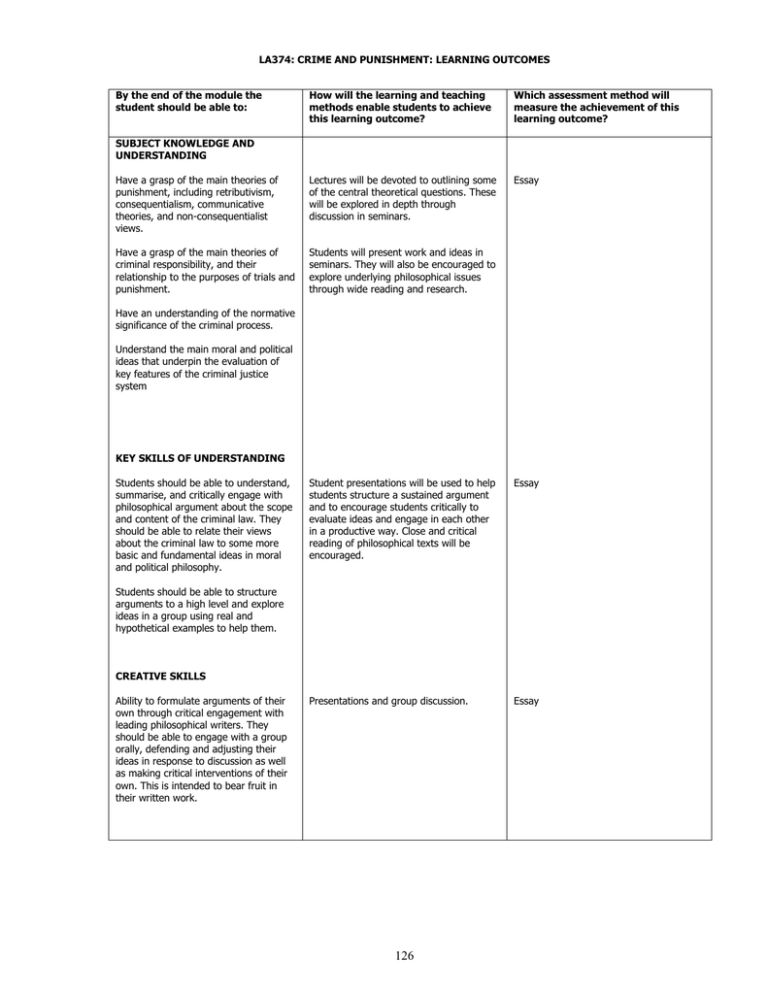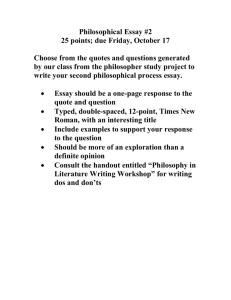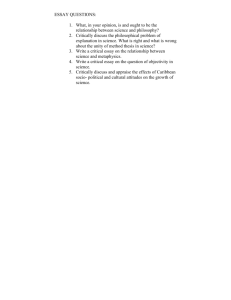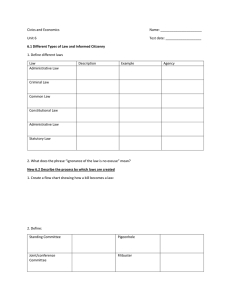LA374: CRIME AND PUNISHMENT: LEARNING OUTCOMES
advertisement

LA374: CRIME AND PUNISHMENT: LEARNING OUTCOMES By the end of the module the student should be able to: How will the learning and teaching methods enable students to achieve this learning outcome? Which assessment method will measure the achievement of this learning outcome? Have a grasp of the main theories of punishment, including retributivism, consequentialism, communicative theories, and non-consequentialist views. Lectures will be devoted to outlining some of the central theoretical questions. These will be explored in depth through discussion in seminars. Essay Have a grasp of the main theories of criminal responsibility, and their relationship to the purposes of trials and punishment. Students will present work and ideas in seminars. They will also be encouraged to explore underlying philosophical issues through wide reading and research. SUBJECT KNOWLEDGE AND UNDERSTANDING Have an understanding of the normative significance of the criminal process. Understand the main moral and political ideas that underpin the evaluation of key features of the criminal justice system KEY SKILLS OF UNDERSTANDING Students should be able to understand, summarise, and critically engage with philosophical argument about the scope and content of the criminal law. They should be able to relate their views about the criminal law to some more basic and fundamental ideas in moral and political philosophy. Student presentations will be used to help students structure a sustained argument and to encourage students critically to evaluate ideas and engage in each other in a productive way. Close and critical reading of philosophical texts will be encouraged. Essay Presentations and group discussion. Essay Students should be able to structure arguments to a high level and explore ideas in a group using real and hypothetical examples to help them. CREATIVE SKILLS Ability to formulate arguments of their own through critical engagement with leading philosophical writers. They should be able to engage with a group orally, defending and adjusting their ideas in response to discussion as well as making critical interventions of their own. This is intended to bear fruit in their written work. 126





